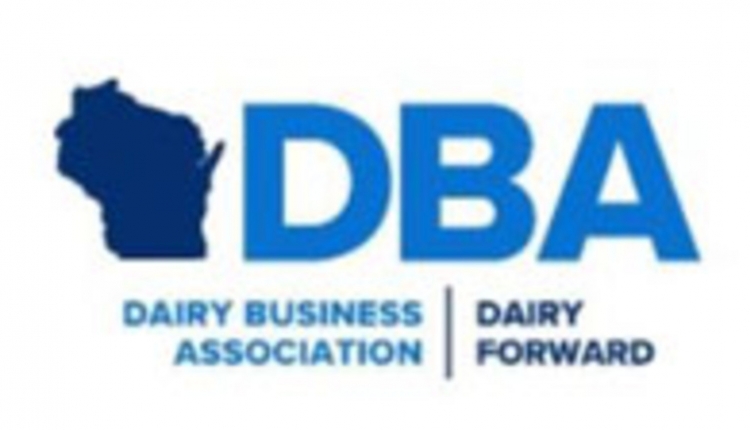The information below has been supplied by dairy marketers and other industry organizations. It has not been edited, verified or endorsed by Hoard's Dairyman.
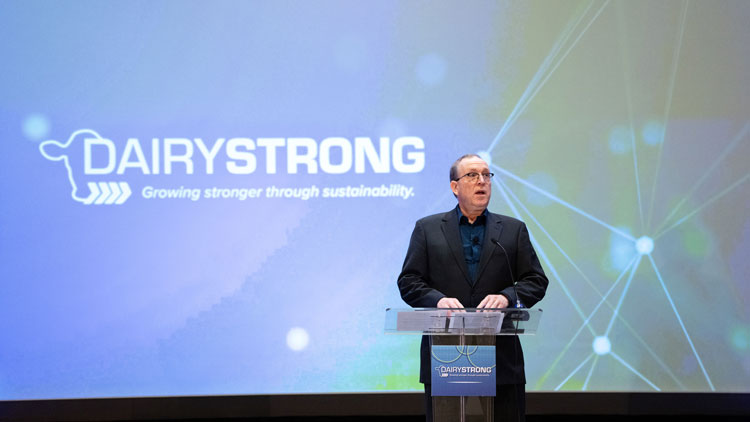
More than 450 people attended the annual Dairy Strong conference to explore the industry’s latest innovations, celebrate its collaborations and delve deep into sustainability.
Conference attendees included farmers representing 280,000-plus cows along with industry experts and representatives from allied business sectors. They listened to keynote addresses, panel discussions and presentations on the latest technology and sustainability tactics. More than 40 vendors shared their products and services during the tradeshow. The event, themed “Growing Stronger Through Sustainability,” was held this week at the KI Convention Center.
“For over a decade, Dairy Strong has been a hub of information for all those involved in the dairy industry in Wisconsin and throughout the entire Midwest,” Dairy Business Association President Lee Kinnard said. “The name Dairy Strong speaks to the dedicated and resilient people who make up our dairy community. Dairy is never short of challenges, but we continue to overcome them through innovative, forward-thinking solutions.”
Strategist and bestselling author Thomas P.M. Barnett shared insights during the event’s kick-off keynote address on the latest demographic studies and what steps the United States can take to win over the globe’s growing middle class, which will help U.S. farmers with selling their products abroad. He said the world is going through three major transitions — climate change, demographic transition and a growing global middle class.
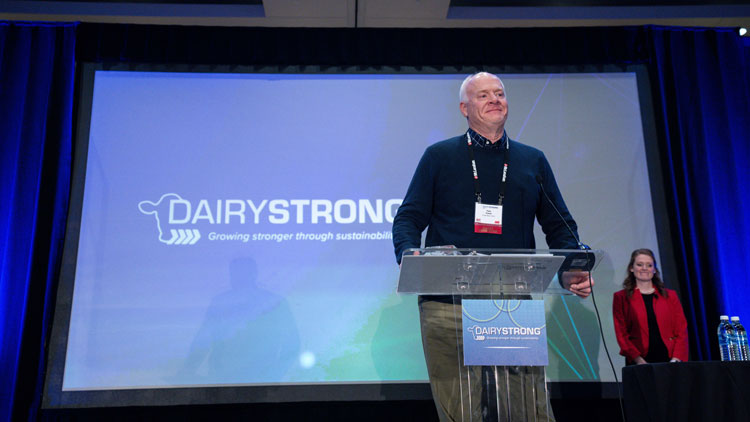
Scott Caine, president of Aimpoint Research, the closing keynote speaker, discussed key concerns for dairy farmers going forward and the steps needed to keep the industry secure.
“Food security and how we produce that food is a national security issue,” Caine, a U.S. Army intelligence officer veteran, said. “We have the ability to supply the food, fiber and fuel not only for our country but to export that as well.”
Attendees also heard from baseball’s iron man, former Baltimore Oriole Cal Ripken, Jr., who played in 2,632 consecutive games.
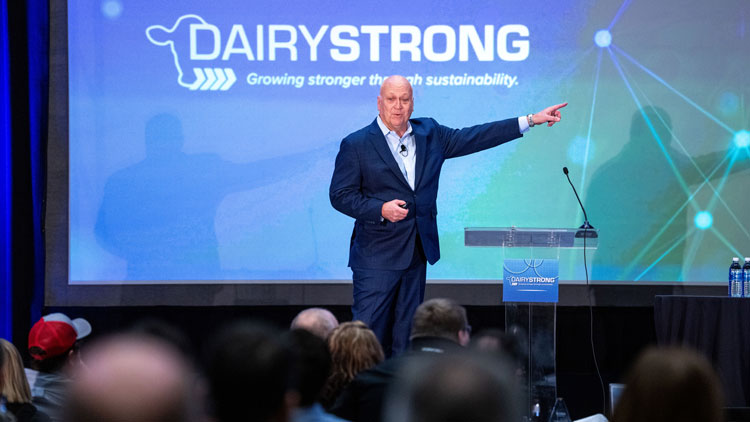
“People always ask me how I played in so many games and what the secret was to my longevity, and it was about the power of perseverance,” said Ripken, a member of the National Baseball Hall of Fame and a lifelong milk drinker.
Multiple-site expansion
Panel discussions and presentations filled out the remainder of the two-day conference.
One panel discussion looked at the growing number of dairy farmers who are adding a second or even a third site to grow their business. Across Wisconsin, 47 dairies have more than one location. Farmers who run dairies at multiple sites shared insights on expanding operations.
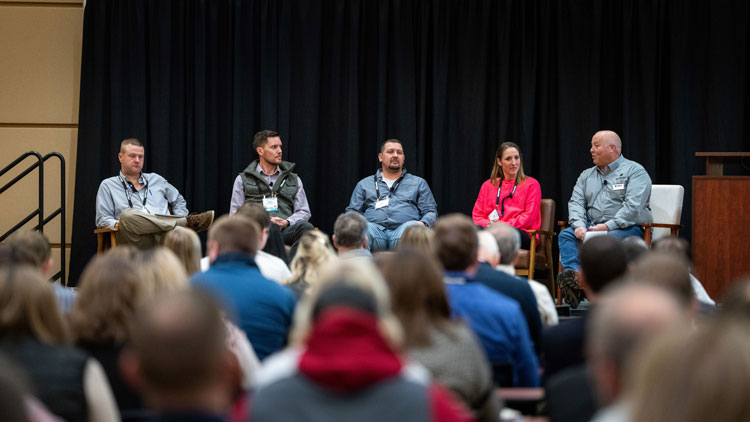
Christine Bender, a sixth-generation dairy farmer from Watertown, Wis., who farms with her husband and parents, expanded the operations to a second site last spring when they purchased another herd of cows and signed a five-year facilities lease on a property about 20 miles from their home dairy, McFarlande Dairy. They were looking at the option of eventually adding a rotary milking parlor, but to make financial sense the dairy would need more cows.
“We saw adding this herd as a stepping stone to being able to get that new parlor,” Bender said. “To run two sites successfully, the key for us is to have the key people in the right positions.”
One of Wisconsin’s largest family-owned dairies, Pagel Family Businesses, which includes Pagel’s Ponderosa Dairy, LLC, in Kewaunee, Wis., has run multiple sites since the early 2000s. JJ Pagel, who runs the business with his siblings, said strong relationships with neighbors, vendors and employees are vital to making everything run smoothly. The dairy has also embraced technology, allowing Pagel to view key information, such as milk production, from an online dashboard.
“We have operation managers at each site. We bring in the teams from each site once a week, such as the maintenance guys in on Tuesday, and they talk about what’s going on,” said Pagel, whose dairies milk around 11,000 cows and farm about 15,000 acres. “The dashboards are helpful since I can’t be on every farm at the same time.”
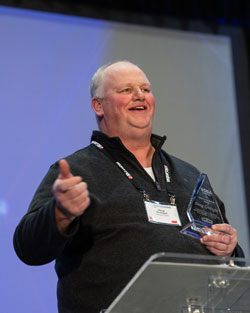
Conservation and sustainability were leading themes at this year’s Dairy Strong, with several presentations focused on various parts of the issue from how to use cover crops to improve soil health to the role of sustainability in the industry’s supply chain.
“We hear from our customers (food manufacturers) that they want decreased greenhouse gases throughout the process, starting with the producer,” said Holly Jones, director of global sustainability for Agropur, during a discussion on dairy supply chain collaboration. “The majority of farmers are open to sustainability initiatives, and many farms are already carbon neutral.”
Farmer recognition
Two awards were given out at the conference.
The Dairy Business Association honored Tom Crave of Crave Brothers Farm in Waterloo, Wis., with the association’s Advocate of the Year award for his role in shaping Wisconsin’s dairy community. And, a new award was unveiled in collaboration with Dairy Farmers of Wisconsin for dairy men and women who prioritize building trusted relationships with their neighbors and the surrounding community. Doug Grotegut of Grotegut Dairy Farm Inc. in Newton, Wis., was the inaugural recipient of the Community Builder Award.
About DBA:
The Dairy Business Association is Wisconsin’s leading dairy lobby group, championing smart and sensible regulations affecting the dairy community. The nonprofit organization is comprised of farmers, milk processors, vendors and other business partners who work collaboratively to ensure that dairy farms of all sizes have the support they need to keep America’s Dairyland strong. More information: www.dairyforward.com.


